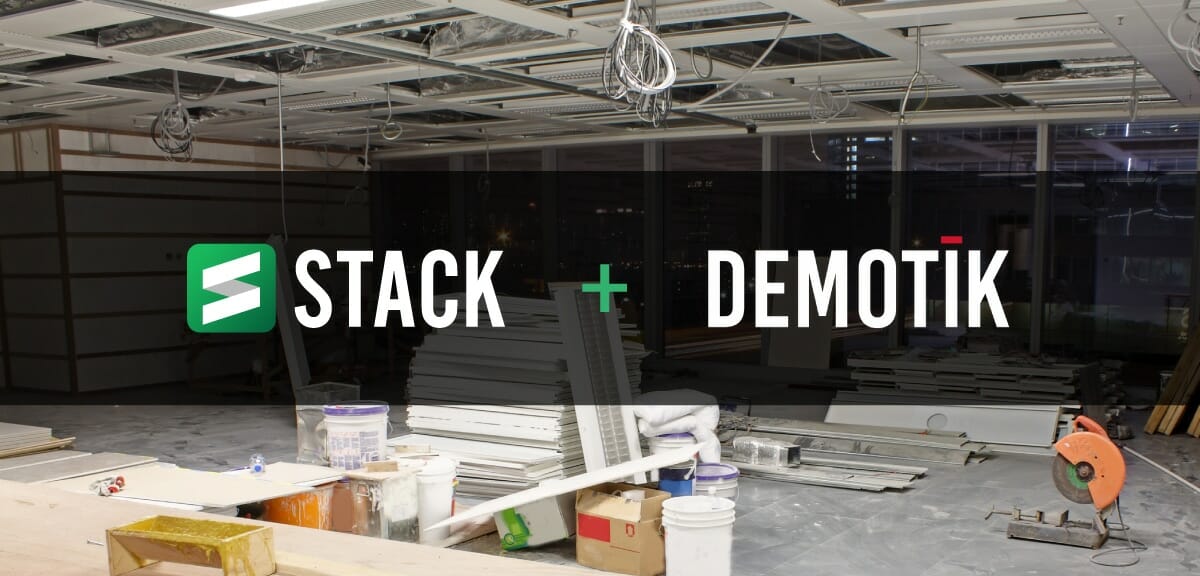
When your small business is in growth mode, it can be tough to decide where the tipping point is: do the work yourself or hire help? Of course you only want to add another salaried employee when the time is absolutely right, but how do you know when that is? And when you make the decision, where do you start? Here’s your quick guide to hiring a construction estimator.
Deciding When It’s Time to Hire
To make the tough decision on when to start the hiring process, take a hard look at your own day-to-day.
– Are you spending your days in the field and your nights at the office (or kitchen table) estimating?
– How much of your time is spent on estimating compared to your other responsibilities?
– Are you bidding as many jobs are you want to be?
– How’s your accuracy rate? Are you making mistakes because you’re in a rush?
– What’s your plan for company growth in the near future?
You’re the business owner, so the majority of your time should be spent running the business. Time in the field supervising your crew is one thing, but if too many hours are taken up on administrative tasks, you’ll struggle to meet your growth goals.
It’s also worth taking into account your personal life. Would you rather have dinner with your family or be stuck finishing a bid? Would you rather catch your kids’ games or be sifting through plans and specs? Would you rather enjoy the outdoors, a concert, a good book, or be stuck at the office?
Estimator Qualifications to Look For
Many construction estimator roles require a degree in architecture, engineering, or construction management. This is a good indicator that a candidate will have an understanding of the industry, but remember that it’s not the only way candidates gain the needed skills. Including the option for equivalent relevant work experience helps ensure you’re not excluding folks with deep experience in construction estimating but who may not have attended formal schooling.
Of course, for your first estimating hire, you won’t have time to train someone fresh out of college either, so you’ll want to require at least 2-3 years of experience doing the job for a reputable and successful firm.
Later, when you’re ready to build your team, you can afford to risk hiring a junior estimator for your seasoned employee to train, but right now you need someone who can get up and running with minimal help from you.
In addition to education and experience, consider seeking out individuals with the following qualities:
– Familiar with common office software such as Microsoft products
– Familiar with project management and construction estimating software
– Strong communication and interpersonal skills
– Strong attention to detail and ability to work independently
– Problem-solving skills and ability to pivot in a fast-paced environment
– Integrity and discretion when handling confidential information
Recruiting Construction Estimator Candidates
There are 3 primary ways to go about recruiting your next estimator:
1. Word of mouth
2. Recruiting agencies
3. Job boards
Always start by spreading the word among your existing employees as well as any other trusted contacts in the industry such as other specialty contractors and general contractors with whom you have a solid relationship. In many cases, candidates who are referred by someone you know have a higher likelihood of being a good fit.
Use of the other two techniques depends on your budget of both cash and time. If you can afford it, a recruiting agency will do outreach, perform the initial screen of candidates to determine qualifications and fit, and then pass them on to you for evaluation, saving you the hassle of posting the role and excluding numerous unqualified applicants.
Agencies can get expensive, though, so if you can make it work timewise, you might be better off posting your opening on general job boards like Indeed, as well as construction-specific sites like constructionjobs.com or Procore’s Construction Career Board.
The Interviewing & Selection Process
Once you have a few candidates who look promising on paper or from an initial recruiter screening, it’s time to meet with them. Remember that the interview goes both ways – you’re looking for a good fit for your company, but the candidate is also evaluating you to decide if this is a good place for them to work. So, set the tone of the interview to match your company’s culture and style as far as formality and communication go.
Estimator Interview Question Examples
After asking candidates to tell you about themselves and their background, have a set of questions ready but also be prepared to have more of a fluid conversation. Possible topics could include:
– How would you describe your takeoff and estimating process? Tell me about the steps you take for each project.
– How do you know you’re getting the most accurate measurements and quantities?
– Which construction technology platforms are you familiar with, and which do you prefer to work with?
– How do you like to be managed? What is your work style?
– Have you ever lost a bid due to a mistake or miscalculation? How did you handle it?
– What is your ideal work environment like?
– Tell me about a time when you had to complete a bid under a tight deadline. Did you submit on time? Did you win the project?
Use these as starting points for your discussion rather than firing question after question at the candidate, and if at any time either of you gets stuck, you can ask a follow-up, such as, “Can you tell me more about that?”
Be mindful of time and leave at least 10-15 minutes at the end of the interview for the candidate to ask their own questions of you. Be prepared to talk about your company culture, your management style, what a day in the position may entail, and specific expectations and definitions of success in the role.
Comparing Estimating Candidates
During and immediately after your interviews, take notes, jotting down as much relevant information as you can remember. You might also find it helpful to create a scorecard with your main focus areas and how candidates stack up in each. Categories might include:
– Technical ability (estimating)
– Trade experience
– Software familiarity
– Culture & personality fit
– Leadership experience or potential (if you’ll grow the department)
Ultimately your decision will come down to which candidate is the most qualified for the job and who also meshes the best with your work style and personality. Go with your gut on this one because you’ll need to spend a lot of time with this person going forward!
Onboarding & Retention
Congratulations on hiring your first estimator! Your job isn’t finished, though – now it’s time to make a good first impression and make sure your new hire loves where they work.
Be ready to offer HR paperwork, benefits information, a tour of the office, and introductions to any other team members and stakeholders as soon as possible. If you can swing it, take them to lunch or order in their first day as a generous welcome.
Because it’s your first estimating hire, of course you won’t have a fully fleshed out training program yet, but plan to spend time with your new hire for the first few days showing them how you’ve typically done things and letting them shadow you, being sure to leave room for their feedback and input along the way. Chances are, they’ll identify some easy areas for efficiency and accuracy improvements.
Depending on their experience, your new estimator should be up and running with projects to a certain degree by the end of their first or second week on the job. You can check over their work for the first few bids, and then when they’ve gotten the hang of things, take a step back and allow them to take over while you move on to bigger things!






